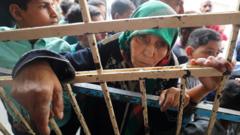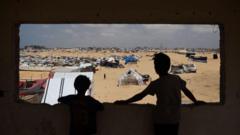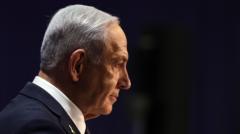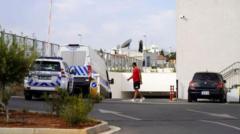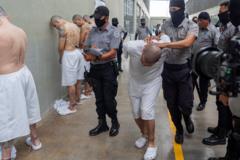The Trump administration has intensified its immigration enforcement, particularly against students critiquing U.S. policies.
U.S. Diplomats Ordered to Monitor Social Media of Student Visa Applicants

U.S. Diplomats Ordered to Monitor Social Media of Student Visa Applicants
The directive from Secretary of State Marco Rubio aims to scrutinize applicants as deportation policies expand.
April 1, 2025 - In a controversial move reflecting the Trump administration's hardline stance on immigration, Secretary of State Marco Rubio has mandated that U.S. diplomats conduct social media checks on certain student and exchange-visitor visa applicants. This directive, issued on March 25 and reported by various officials, is part of an effort to weed out individuals who may pose a threat or express views critical of the United States and Israel, especially in light of ongoing tensions related to the Israel-Palestine conflict.
The directive closely follows President Trump's recent executive orders aimed at deporting foreigners deemed to have “hostile attitudes” towards American principles or culture. The administration has highlighted its commitment to national security, positioning the monitoring of applicants’ social media as a means to ensure that those entering the country will not undermine safety or commit crimes.
According to the guidance provided to consular officers, certain applicants must be retrieved by the fraud prevention unit for a mandatory social media assessment. This requirement reflects comments made by Rubio, who stated in a CBS interview that the goal is to bar individuals from entering the U.S. who could potentially be a risk to national security or public safety. He stated, “We don’t want people in our country that are going to be committing crimes and undermining our national security.”
The implications of this directive are significant, particularly for students who have taken a stand in support of Palestinians or against U.S. foreign policy. Critics argue that such measures may discourage free speech and penalize students for their activism. The administration, however, defends its position, framing it as a necessary step to protect the nation’s core values and public safety.
As discussions surrounding immigration, national security, and free speech continue, the long-term effects of this directive on students’ ability to study in the U.S. remain to be seen.
The directive closely follows President Trump's recent executive orders aimed at deporting foreigners deemed to have “hostile attitudes” towards American principles or culture. The administration has highlighted its commitment to national security, positioning the monitoring of applicants’ social media as a means to ensure that those entering the country will not undermine safety or commit crimes.
According to the guidance provided to consular officers, certain applicants must be retrieved by the fraud prevention unit for a mandatory social media assessment. This requirement reflects comments made by Rubio, who stated in a CBS interview that the goal is to bar individuals from entering the U.S. who could potentially be a risk to national security or public safety. He stated, “We don’t want people in our country that are going to be committing crimes and undermining our national security.”
The implications of this directive are significant, particularly for students who have taken a stand in support of Palestinians or against U.S. foreign policy. Critics argue that such measures may discourage free speech and penalize students for their activism. The administration, however, defends its position, framing it as a necessary step to protect the nation’s core values and public safety.
As discussions surrounding immigration, national security, and free speech continue, the long-term effects of this directive on students’ ability to study in the U.S. remain to be seen.

